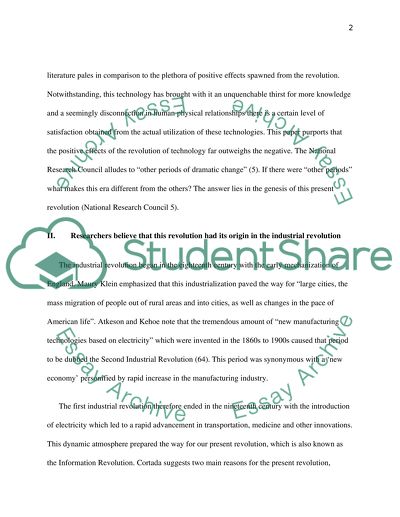Cite this document
(“Revolution of Technology Research Paper Example | Topics and Well Written Essays - 1750 words”, n.d.)
Retrieved from https://studentshare.org/information-technology/1426850-revolution-of-technology-what-causes-and-effects-
Retrieved from https://studentshare.org/information-technology/1426850-revolution-of-technology-what-causes-and-effects-
(Revolution of Technology Research Paper Example | Topics and Well Written Essays - 1750 Words)
https://studentshare.org/information-technology/1426850-revolution-of-technology-what-causes-and-effects-.
https://studentshare.org/information-technology/1426850-revolution-of-technology-what-causes-and-effects-.
“Revolution of Technology Research Paper Example | Topics and Well Written Essays - 1750 Words”, n.d. https://studentshare.org/information-technology/1426850-revolution-of-technology-what-causes-and-effects-.


